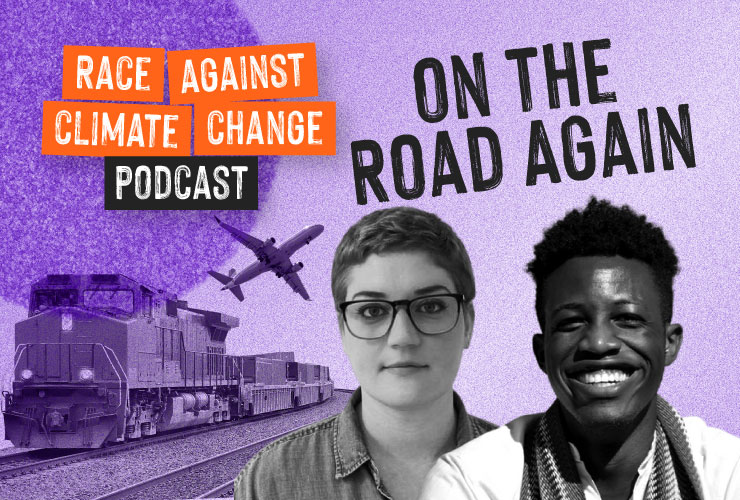Why Mia Amor Mottley matters so much

It is the combination of power, defiance, intelligence and compassion that made the prime minister of the world’s newest republic, Mia Amor Mottley, a lightning rod that highlighted the ineffectiveness of world leaders at COP26 at advancing action to combat the climate crisis.
On Tuesday, the UN Environment Program announced the prime minister of Barbados was one of its 2021 Champions of the Earth, the world body's most prestigious environmental honour. Mottley was recognized in the policy leadership category for her "powerful voice for a sustainable world from the Global South, consistently raising the alarm about the vulnerability of Small Island Developing States (SIDS) due to the climate emergency."
Instead of using the conference with its other exalted members of state to deliver platitudes and soliloquies that buttress the vanity of power, Mottley used her platform, reclaimed her time and administered a searing speech that cornered the intentions of the leaders of the Global North and reduced them to selfish and rapacious fecklessness.
And in that verbal disquisition on the inequities of the disproportionate impacts that are borne on Small Island Developing States, she championed the advocacy of climate activists, progressive allies, anti-racists and intersectional feminists alike.
Hold the sugar and its coating.
SIDS are particularly vulnerable to the effects of climate change and have been quite vocal in their advocacy for pushing the Global North for more aggressive climate goals.
As Athaulla Rasheed explained in the journal, International Studies: “The SIDS have been in the UN climate negotiations since the 1980s, committed to a climate agenda with clear ideas about the challenges they face and the type of solutions they seek from the international policy community.”
Mottley’s contribution to this history is to champion the need for financing for SIDS to address the impacts of climate change on their economies and societies. The policy prescription would establish a funding mechanism to help vulnerable states respond to the impact of climate change on their nations. In addition to the United States and the European Union, Canada is against it.
As Steven Guilbeault, our new environment minister said: “I don’t think we are at the stage where we are talking about a new funding mechanism to be created.” Perhaps that’s because Canada has only contributed 17 per cent of contributions (as of 2017) it committed to the US$100-million climate finance goal promised to “address the needs of developing countries” as part of the Paris Agreement.
In other words, Canada is stringing along countries that need help the most, which puts in question our commitment to ensuring these states survive into the next decade. Black and brown lives are at stake, which means Canada is not interested.
Instead, rich countries offered crumbs from Massa’s table in the form of technical assistance, demonstrating an ongoing commitment to keep SIDS economically dependent on exploitative international assistance models by way of climate colonialism.
Call them climate reparations, since the inequities of global climate change are demonstrated by the reality that it is the Global North that created the problem while the Global South suffers its consequences.
Much like vaccine apartheid, the North continues to strangle the South, as the latter must contend with trying to lower poverty levels, reduce staggering debt (Barbados entered selective default in 2018) while taking on a climate crisis that further erodes their economic capabilities.
“Privileged lifestyles in Europe, North America and other nations in the Global North produce a carbon footprint 100 times greater than that of the world’s poor nations combined,” noted Euronews in summarizing a report by Oxfam.
An article in Scientific Reports clarifies this course: “Countries export much of the harm created by their greenhouse gas (GHG) emissions because the Earth’s atmosphere intermixes globally.”
Their research found “an enormous global inequality where 20 of the 36 highest-emitting countries are among the least vulnerable to negative impacts of future climate change. Conversely, 11 of the 17 countries with low or moderate GHG emissions are acutely vulnerable to negative impacts of climate change.” Oxfam has championed a similar redistribution model that Mottley and other SIDS support.
In her COP26 speech, Mottley noted the despairing, foreboding reality of catastrophe for the most vulnerable nations to the climate emergency were climate finance goals not met: “By then, it will be too late.”
If only Guilbeault and the Trudeau government had enough humanity to keep their performative promises.
Erica Ifill is an economist-turned-entrepreneur who founded her own communications agency, Not In My Colour. She is also the co-founder and co-host of the Bad + Bitchy podcast and a columnist for The Hill Times.







Comments